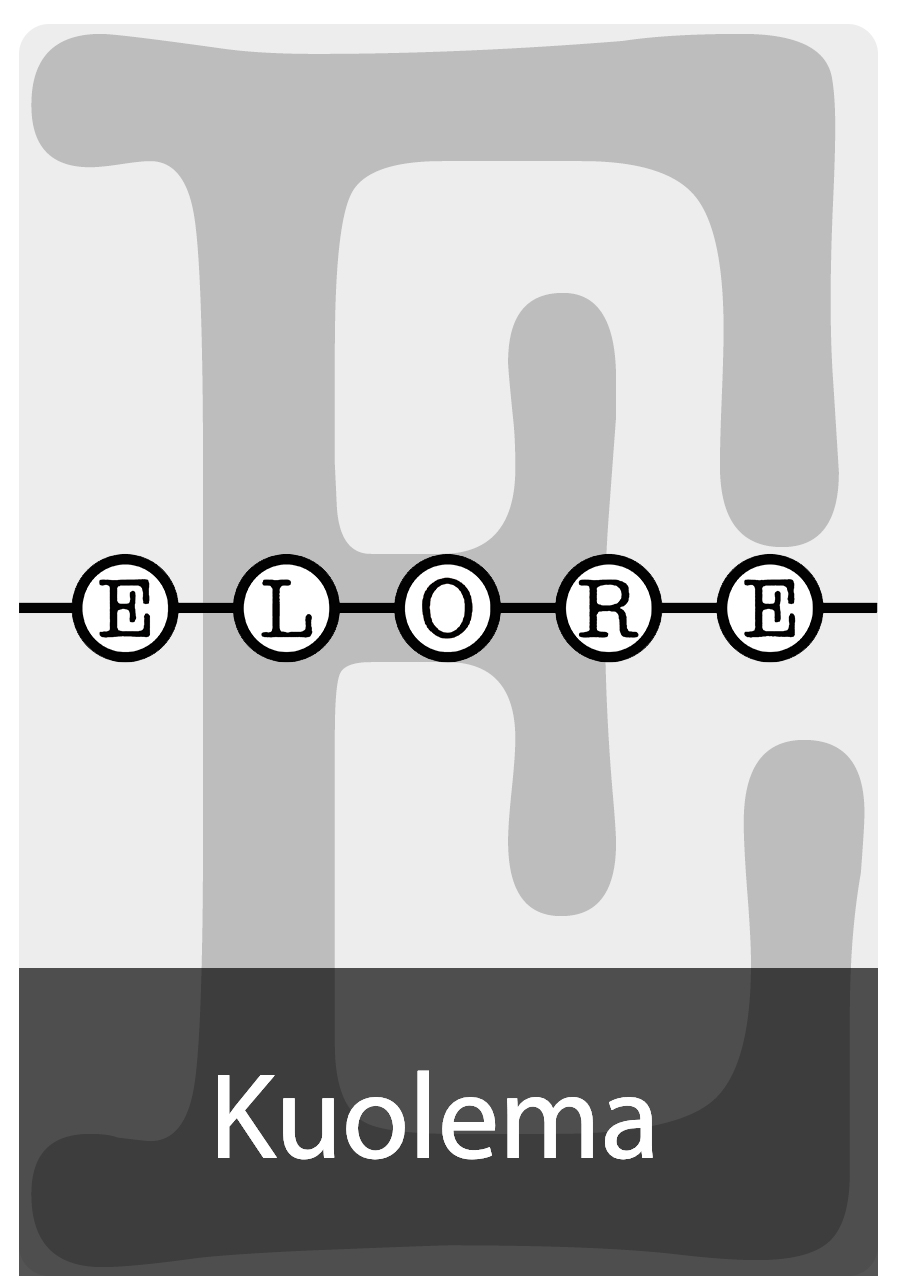Rituaali, identiteetti ja ylirajaisuus
DOI:
https://doi.org/10.30666/elore.78500Abstrakti
In this article I ponder the relationship between rituals and identities in the context of the remigration of persons of Finnish origin from Russia to Finland. The traditional ethnological study of rituals of death presupposes that ritual has to do with the community’s system of values and answers the main questions of human existence concerning the possibility of eternal life. In this conception of ritual the person is seen as a member of collective and a carrier of its culture. On the contrary, the postmodern theory of subjectivity releases the subject from membership in the stable group, but argues that identification is a flexible strategic process, serving the individual’s and group’s future goals. Using examples of official Soviet-era funeral scenarios and unofficial Russian folk-religious funerals, I analyze those cultural models and ideologies. Through my own experiences of funerals in Petrozavodsk and Joensuu I introduce the multivoicedness of funeral practices. Remigration to Finland is a part of present-day Finnish nationalism on the one hand, and global transnational migration and diasporic space on the other. A return migrant’s ethnic, national, ideological and cultural identification tends to be multi- layered, inconsistent and hybrid. Conducting ritual according to a certain canon does not automatically express the “true identity” or moral values of the community, but rather perceived configurations of cultural power-relations of the society of residence.Tiedostolataukset
Julkaistu
Viittaaminen
Numero
Osasto
Lisenssi
Lehti noudattaa ns. timanttista avoimen julkaisemisen mallia: lehti ei peri maksuja kirjoittajilta ja julkaistut tekstit ovat välittömästi avoimesti saatavana tiedelehtien Journal.fi-palvelussa. Toimittamalla artikkelin Eloreen julkaistavaksi kirjoittaja suostuu syyskuusta 2024 alkaen siihen, että teos julkaistaan CC BY 4.0 –lisenssillä.Lisenssin mukaan muut saavat kopioida, välittää, levittää ja esittää tekijänoikeuksiin kuuluvaa teosta sekä sen pohjalta tehtyjä muokattuja versioita teoksesta vain, jos he mainitsevat lisenssin, alkuperäisen julkaisun (linkki tai viite) ja kirjoittajan alkuperäisenä tekijänä. Kaikki tehdyt muokkaukset on ilmoitettava.
Tekstien tekijänoikeus säilyy kirjoittajilla ja julkaistun version rinnakkaistallennus on sallittua. Tämä koskee myös ennen syyskuuta 2024 julkaisuja tekstejä. Rinnakkaistallenteessa tulee näkyä Eloren julkaisutiedot.
Julkaistujen artikkeleiden metadatan käyttölisenssi on Creative Commons CC0 1.0 Universal.





